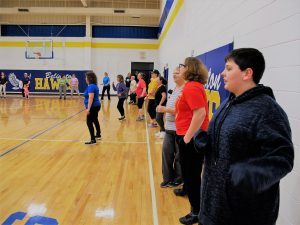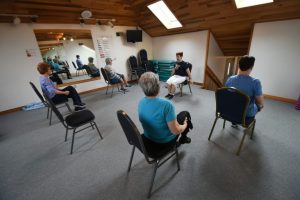5 Reasons to Register for Our Diabetes Education Classes
The number of people affected by diabetes in West Virginia grows every day. For those affected by the disease, life can seem overwhelming with all the concerns, dietary requirements, and new medications. At Myers Clinic, our job is to make sure you’re armed with the education you need to stay healthy. That’s why we’re offering a FREE 4-course Diabetes Education Class that will be held every Tuesday beginning September 3rd, 2019 at 6:30 PM. Classes will be taught by Kim Jefferies, RN, CTTS, and will focus on diabetic tips, best practices, and nutrition.
This class is beneficial to diabetics and those who care for diabetics. The purpose of the class is to promote the health and quality of life of those suffering and prevent complications that can arise with unmanaged diabetes. Still not convinced? Here are the five top reasons to register:
- Misinformation – there are plenty of misconceptions surrounding the disease and diabetes education helps set the record straight. Come to class ready to learn, or re-learn, things you may have ignored before or maybe didn’t need to know earlier. What we know about diabetes and how we treat diabetes changes all the time.
- Monitoring – including how to prick your finger, monitor your blood sugar, when to test, and what those results may mean. When you learn to look for signs of your diabetes changing, you can better react.
- Nutrition – Diabetes is complex, so it has to be managed every day. These classes will help you learn how to eat and exercise, determine and set your health goals, and get the tools to achieve those goals.
- Improved Quality of Life – there are no side effects to improving your lifestyle and there are no side effects to eating better and losing weight when done correctly. When you plan for nutrition, your diabetes is better managed and results in a better quality of life.
- It’s Free – these classes don’t occur often, so take advantage of this opportunity!
This series is open to everyone and you can register at http://bit.ly/DiabetesClassRegistration.
Barbour Community Health Association to Celebrate 50 Years Of the Belington Medical Clinic
Barbour Community Health Association to Celebrate 50 Years Of the Belington Medical Clinic BELINGTON, WV (Sept. 28, 2023) – Barbour Community Health Association (BCHA)
HPV Vaccine Myths Busted!
HPV Vaccine Myths Busted! Human Papillomavirus (HPV) is the most common sexually transmitted infection in the US. HPV is a virus that can lead
Q&A WITH OUR NEW CHIEF MEDICAL OFFICER, JOHN HENDERSON, MD
Q&A with our new Chief Medical Officer, John Henderson, MD Barbour Community Health Association is delighted to announce the promotion of Dr. John Henderson,









